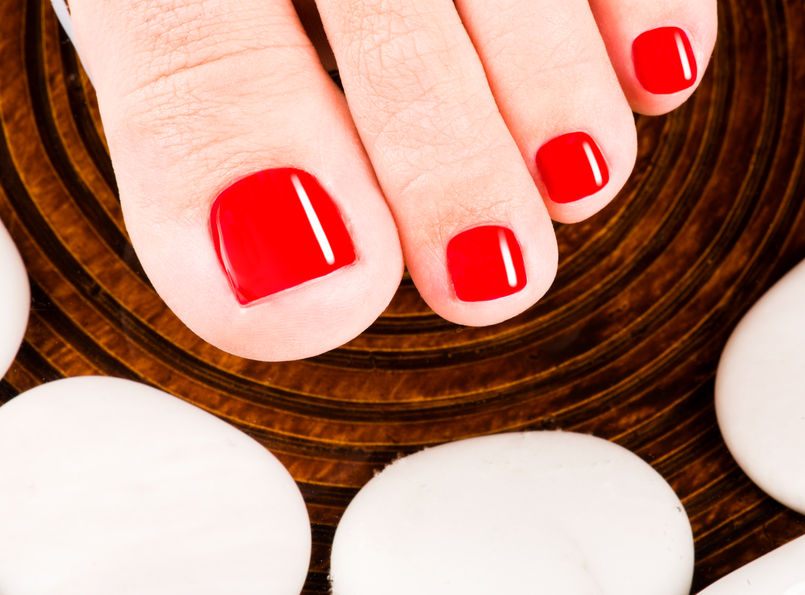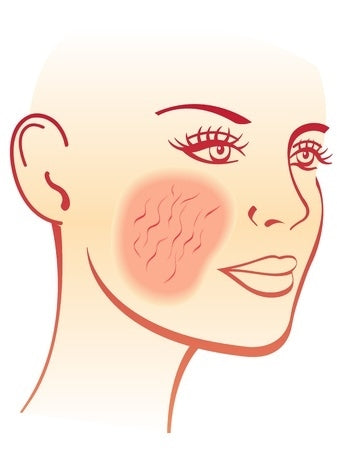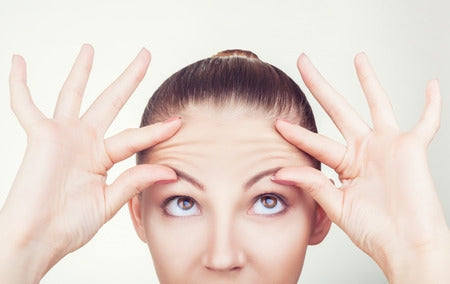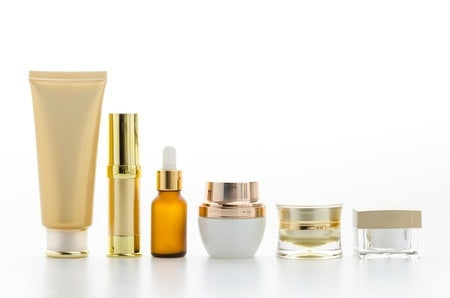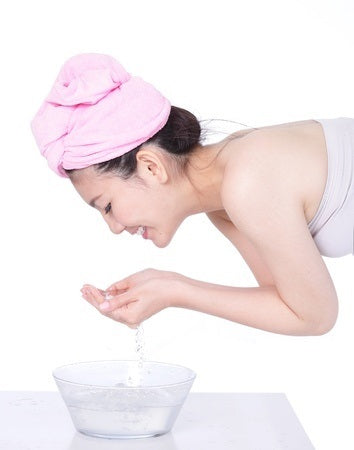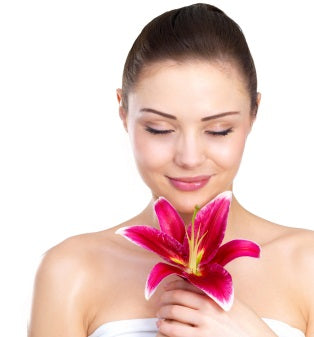Blog
Happy Birthday Canada: 150 Years Old!
This year on July 1 (Canada Day), Canada celebrates its 150th anniversary of Confederation. Communities across the country will be hosting arts and culture festivals, fireworks, exhibitions and sporting events and proud Canadians will come together to toast the nation’s birthday. Shop All Apothekari As someone who came to Canada as an immigrant when I was just seven years old, I’m proud of my adopted homeland and all it stands for. Canada isn’t perfect – far from it – but I think most Canadians will agree that there’s no other country they would rather call home. As we get set to gather with friends and family on this sesquicentennial celebration, there are a few things that make me grateful to live in this beautiful country: Tolerance. Canadians are known the world over for their acceptance of others. In fact, the Legatum Prosperity Index lists Canada as #2 when it comes to tolerance towards immigrants and sexual orientation. Canada was the first country in the world to adopt multiculturalism as an official policy. In 1971, the nation’s plurality of languages, ethnicities and religions became protected by law. Canada has been a trailblazer when it comes to LGBT matters, becoming the third country in the world to introduce same-sex marriage in 2005. Socialized Medicine. The system isn’t flawless, but our publicly funded healthcare system, Medicare, is mostly free and gives healthcare access to all Canadians. Concern for Others. The Social Progress Index lists Canada as very high when it comes to basic human needs, foundations of well-being, and opportunity. I’ll be kicking off Canada Day by hosting a family brunch complemented by maple syrup, of course. Then it’s off to a party where I hope to show off my dancing shoes. Whatever your plans for this historic event, Happy Canada Day!
Learn moreOld Lady Feet: And How to Fight Back
Is it just me or is it every woman of a certain age that eventually has to deal with ‘old lady feet’? Hard to define precisely, the topic of old lady feet crops up more frequently at social gatherings where women congregate these days. It becomes particularly more commonplace during warmer weather, when most of us tend to be more conscious of our exposed feet. My feet don’t look that old, but they often really feel it so I guess the term old lady feet applies. While I’ve never really embraced high heels, there was a time that I could put them on and KEEP them on for an entire evening, often even dancing the night away. Now, just the thought of putting on shoes sporting heels higher than 2 ½ inches is enough to make me cringe. These days, comfort trumps all. If you’re one of those women feeling sorry for the lost feet of youth, don’t despair. Our bodies change as we age and feet aren’t immune to this impact. Here are 5 things that happen to our feet as we get older along with some tips to ease the pain: 1. Fat Disappears We’re born with built-in insoles – collagen and elastin, stuffed with fat tissue on the bottoms of our feet. But collagen decreases as we age, thinning out the fat pads and decreasing the cushioning effect. Your feet may be fine in the morning, but can become quite painful at the end of the day. Solution: Before considering fat transplants (expensive and little proof they work), seek out cushioned and comfortable shoes. Wear insoles or gel pads if you need to. Have you noticed how many women have embraced the sneaker look; the rise of the Birkenstock? Coincidence? I think not. 2. Arthritis Develops Our bones and joints can degenerate with age causing pain and morning stiffness. The big toe or the joints on the top of your foot are most likely to be affected. Solution: Try shoe inserts, exercises or losing weight to see if that helps. Seek medical attention if the pain persists. 3. Skin Dries Out The collagen which cushions your feet, also plumps up your skin. A decline in collagen can leave the soles prone to dryness and cracking. Solution: Take care by applying a hydrating foot or body cream. We love Apothekari Shea Body Butter applied after the bath or shower and again when you go to bed. Wearing socks over top of your moisturizing treatment while you sleep can work wonders. 4. Tendons & Ligaments Turn Against You As you age, your body’s ability to hang on to water declines and you can witness this in your tendons, causing stiff ankles and other body parts. On the flip side, other connective tissues called ligaments may stretch out over time, leaving you with fallen arches and a flatter foot. You may not be as well balanced either, leaving you prone to ankle sprains. Solution: Exercise is your best friend here. Try strengthening exercises like ankle circles and toe raises. Calf raises can help to relieve tight ankles. 5. Bunions, Corns and Hammertoes Improperly fitting shoes, anatomical and hormonal changes and genetics may all play a role in the development of these foot complications. Although not medially serious, they may make you feel self-conscious about your feet. Solution: Check in with your doctor or a podiatrist to see if they can help. If you feel a lot of pain, surgery may be recommended. Don’t let old lady feet get you down. A new generation of women now who want fashionable AND comfortable shoes and shoe makers are starting to take notice. Shoes that are functional, supportive AND fashionable are easy to find these days. Sporting low, sturdy heels, cushioned foot beds and rubber soles, this footwear has style to boot. Splash out on a pedicure and go shoe shopping. Here are a few pairs that have caught my eye recently: Clarks Amali Tulip Leather Shoe in Silver Coclico Pop-Up Wedge Stuart Weitzman Nudist June Sandal. Isn’t the pink just divine? Eileen Fisher Black Leather Blog Slide
Learn moreGreen Tea and Skin: What You Need to Know
The combination of green tea and skin gets a big thumbs up! In fact, I’m such a big fan of its benefits that we have recently added green tea extract to our Bespoke Vitamin C Serums. Shop Bespoke Vitamin C 15% Shop Bespoke Vitamin C 10% Green tea contains a number of beneficial micronutrients including the potent antioxidant Epigallocatechin-3-gallate. Let’s just call it EGCG, shall we? When it comes to green tea and skin, the benefits can’t be downplayed. This valuable ingredient contains polyphenols, nutrients with antioxidant activity, that are also found in dried spices, fruits, vegetables, red wine and cocoa. EGCG is the polyphenol we are most interested in when it comes to skin care because it is backed by the most clinical research to support its health benefits. Although the research is limited, it’s thought that tea (white and green in particular) can increase the antioxidant capacity of tissues, especially the blood, and that it can improve the lipid profile, due to its impact on LDL, or bad cholesterol. Green Tea and Skin Health A number of studies support the skin benefits of green tea, which include: Skin Cancer Protection. Studies suggest that EGCG and other green tea polyphenols are anti-inflammatory and possess anti-cancer properties that may help prevent the growth of skin tumors by reducing sun damage after UV exposure. Acne. By reducing sebum secretion, green tea may help to prevent acne. Rosacea. A small study showed an improvement in redness and capillary involvement in individuals with rosacea although more research is warranted. Wrinkles and Other Signs of Aging. Due to its antioxidant and anti-inflammatory action, topical green tea extract is likely to help slow the development of some signs of aging such as wrinkles and fine lines. If you’re looking to optimize your skin care routine, adding a comprehensive antioxidant formulation is a must. Layer it on in the morning under your sunscreen to help protect against UV damage and pollution. Our Bespoke Vitamin C Serum contains L-ascorbic acid, green tea extract (EGCG) and an arsenal of other highly effective antioxidants to ensure that your skin benefits from this potent combination.
Learn moreRetinaldehyde As A Rosacea Treatment
Retinaldehyde, in our top selling Apothekari A is for Anti-Aging, has been found effective as a rosacea treatment. A derivative of Vitamin A, retinaldehyde belongs to a class of ingredients known as retinoids. Shop A Is for Anti-Aging Serum (Our Retinoid Formulation) If you have rosacea, a facial skin condition characterized by redness, pimples, swelling and small and superficial dilated blood vessels, you’re not alone. Although its cause is unknown, rosacea affects somewhere between 1% and 10% of people, with individuals 30 to 50 years old and female mostly afflicted. Rosacea can feel a lot worse than it looks and can take a psychological toll on those who have it. Individuals with rosacea feel self-conscious and embarrassed about the redness and bumps on their faces and may be affected by the common misconceptions about rosacea, such as it is a sign of alcohol abuse or poor hygiene. Low self-esteem is quite common and treatment has been shown to improve the mental and emotional well-being of rosacea patients. Clinical Study Supports Retinaldehyde as a Rosacea Treatment A study published in the journal, Dermatology, had researchers investigating the effects of a topical formulation with retinaldehyde, in patients with signs of vascular (blood vessels) facial rosacea. Patients applied a treatment once daily for 6 months and were then assessed for signs of erythema (redness) and telangiectasia (dilated, spidery capillaries). A response was noted in about 75% of the patients with erythema. To a lesser extent, there was a response to telangiectasia as well. The authors concluded that retinaldehyde has beneficial effects on the vascular component of rosacea and offers promise as a rosacea treatment. Although retinoids are adored by all skin care professionals for their ability to boost collagen production, increase skin cell turnover and fight hyperpigmentation, there can be an adjustment period with their use. Enter retinaldehyde. This gentle, yet effective retinoid tends to be much better tolerated than its relatives such as retinol and retinoic acid. Sensitive skin types, including those with rosacea tend to be cautioned against using retinoids, but many dermatologists note that even sensitive skin can be trained to tolerate retinoids, if they go slowly. If you have rosacea and are interested in retinaldehyde as a possible rosacea treatment for your skin, here’s how to introduce it properly: An Adjustment Period. It can take a while for skin to adapt to retinaldehyde. At first, skin may slough off, leaving flaky patches of dry skin. This isn’t necessarily a bad sign as it means it’s working. Retinoids increase skin cell turnover, telling older skin cells to shove off so that the newer ones can show through. Skin irritation and dryness may occur, but over time, skin will become less sensitive and more resilient. Avoid Harsh Cleansers. This also extends to exfoliants like alpha hydroxy acids, which may strip away skin’s natural oils and make the retinoid adjustment period more painful. Opt instead for soothing and gentle cleansers like Apothekari Cloud Nine Foaming Cleansing Creme. Wear Sunscreen. Absolutely and every day. Sensitive skin does better with those that are mineral rather than chemical based – stay tuned as we will soon be introducing our zinc oxide broad spectrum Shade SPF 30! Easy Does It. Start out by applying your treatment just two nights a week, adding a night every other week as tolerance develops. Sunlight deactivates retinoids so only apply at night. Moisturize. A good moisturizer infused with anti-inflammatories can help to decrease the potential for retinoid side effects. Niacinamide, an antioxidant and anti-inflammatory ingredient, also improves skin’s barrier function and can help to make the retinoid adjustment much easier. This superstar ingredient accompanies retinaldehyde in our A is for Anti-Aging. Do you have rosacea and would you consider retinaldehyde as a rosacea treatment? If you are at all unsure, check in with your health care professional to see if it might be right for you.
Learn moreVitamin C For Skin: 5 Benefits
Many ingredients can contribute to the health of your skin and I’m really excited about those of Vitamin C for skin. Well studied and well documented, the benefits of the little anti-aging superstar are undisputed! Also known as L-ascorbic acid, Vitamin C is found in a variety of food and used as a dietary supplement. But, it also packs a powerful punch when it comes to skin. If you haven’t considered topical Vitamin C for skin wellness yet, it’s something you may want to think about. Here are 5 proven benefits of topical Vitamin C for skin that will leave you fresh, youthful and glowing: Antioxidant Protection. As an antioxidant, Vitamin C helps to protect skin against damage caused by free radicals, unstable molecules which can wreak havoc to skin cells. Free radicals can be generated upon exposure to ultraviolet (UV) light or pollution. Vitamin C acts as a shield to minimize their disruption. Protection Against Sun Damage. Although not a sunscreen, Vitamin C limits the damage caused by exposure to ultraviolet (UV) light. It does this through its antioxidant activity, by neutralizing free radicals. Although Vitamin C alone can provide photoprotection, it works best in conjunction with Vitamin E, which increases the action of Vitamin C four-fold. Boosts Collagen Synthesis. (Bye Bye Wrinkles!). Vitamin C is essential for the synthesis of collagen, a protein which forms part of the skin’s structural framework. Fights Hyperpigmentation. Vitamin C falls disrupts the synthesis of melanin, which is responsible for skin’s colouring. This makes it a useful agent in treating age spots, melasma and brightening the skin tone. Anti-Inflammatory Agent. Vitamin C has anti-inflammatory activity and can be used in conditions like acne vulgaris and rosacea. It has been shown to promote wound healing and prevent post-inflammatory hyperpigmentation. Shop Bespoke Vitamin C 15% Shop Bespoke Vitamin C 10% Vitamin C treatments are best applied in the morning when they offer protection from daily assaults. If you’re convinced about Vitamin C for skin, we’ve got you covered with Apothekari Bespoke Vitamin C Serum. Available in both a 10% and 15% concentration, we make this treatment to order to ensure its stability and potency. Including ferulic acid, Vitamin E and an arsenal of antioxidants, this light serum delivers unparalleled antioxidant protection. It also boasts hyaluronic acid and glycerin to moisturize and hydrate. What are you waiting for?!
Learn moreStress and Skin: 5 Signs to Watch
Stress and skin; is this something you’re concerned about? If you follow us on social media, you may note that we often post about relaxation, zen, work/life balance and looking after yourself. It’s a well-known fact that stress affects your overall health, including that of your skin. Wellness is something that I feel deeply about so it’s a topic that won’t be a stranger to this blog. Shop A Is for Anti-Aging Serum (Our Retinoid Formulation) Shop Bespoke Vitamin C 15% In today’s post, we’ll look at the connection between stress and skin along with 5 signs to watch out for. First, it’s important to acknowledge that stress isn’t always bad. There is good stress and then there is bad stress. Good stress happens when we are busy doing things we love – planning a big event – a holiday, a party or a wedding. Good stress may also be found in the workplace, when we win a big project, receive a promotion and throw ourselves into our jobs. This kind of stress helps keep us happy, engaged and excited with life. However, when work takes over and we can’t come up for air, we find ourselves struggling about how to pay the bills or if you or someone you care about are faced with a serious illness, bad stress can step in. What Does Stress Do To The Body? When we’re under stress, our body copes by releasing a number of hormones, including cortisol. In short bursts, cortisol helps us cope with stressful situations, which is fine if levels are elevated temporarily. Continue the stress long term, however, and high cortisol levels start impacting our health in a number of ways, lowering our immune function, increasing weight gain, increasing the potential for depression and interfering with our memory. When it comes to stress and skin, here are 5 signs that should encourage you to pay attention: 5 Skin Signs of Stress 1. Dryness/Dullness Cortisol can damage the skin’s ability to hold on to water, resulting in moisture loss. Skin may appear dull. Avoid hot water and fragrances and seek out hypoallergenic products to help prevent further dryness. 2. Itchy, Ugly Rashes The loss of moisture explained above can also damage the skin’s natural barrier which is in place to keep out bacteria and other harmful substances. When this protective layer is damaged, harmful bacteria may penetrate through to the deeper layers of skin. These bacteria produce a protein that may activate the immune system, leading to eczema and psoriasis. Additionally, cortisol acts as a powerful steroid that shuts down one part of the immune system (making you more susceptible to colds and flu) but cranks up another, making you more susceptible to allergens, which can lead to itchy and inflamed skin. 3. Cold Sores The impact of stress on the immune system not only increases the risk for flare-ups of cold sores but also shingles, and viral warts. 4. Fine Lines Cortisol. Again! This time, it adds to fine lines by triggering elevated blood sugar levels via a process known as glycation. Ultimately, glycation damages collagen and elastin, two fibers that help to keep skin smooth, plump and firm. Retinoid treatments as in Apothekari A is for Anti-Aging Serum along with antioxidants (try Apothekari Bespoke Vitamin C Serum) stimulate collagen production and can help to diminish the appearance of wrinkles and fine lines over time. 5. Acne Stress triggers the release of androgens (male hormones) like testosterone which are responsible for the production of sebum. The resulting blocked pores provide a perfect breeding ground for acne. Try incorporating treatments with salicylic acid or retinoids, which help to control bacteria and clogged pores. Living a full life inevitably comes with stress. The key is in how you manage it. What’s your strategy?
Learn moreForehead Wrinkles - Here's What To Do
Forehead wrinkles – or other kinds of wrinkles for that matter, are wrinkles, are wrinkles, are wrinkles! Forehead wrinkles are a natural, if unfortunate, sign of aging, and just like the wrinkles you may develop on your face or around your eyes, it’s hard to escape from them as time goes by. They are a result of sun damage, repetitive movements and aging. If you are someone who is troubled by the appearance of your forehead wrinkles or want to slow down their development as much as possible, there are number of steps you can take to reduce their impact on how you look: SHOP RADIANT SKIN SET Wear Sunscreen. A well formulated UVA/UVB broad spectrum sunscreen with a minimum SPF of 30, will help to fight against the sun’s damaging rays. UV rays break down collagen and elastin, which help skin maintain its structural integrity in fighting against the development of wrinkles. Wearing sunscreen is a must to help prevent the development of forehead wrinkles in the first place. Add in Antioxidants. Ingredients including Vitamins A and C, coenzyme Q10, alpha lipoic acid and green tea can help to fend off free radical damage, which is generated by exposure to the sun and pollution. Free radicals are unstable molecules which can cause havoc in skin and contribute to wrinkles, whether on your forehead or anywhere else. Apply Collagen Boosters. Skin care actives like retinoids increase skin cell turnover, which decreases as we age. These ingredients also ‘tell’ old skin cells to behave like healthier younger ones, helping to boost the production of collagen, giving skin a more youthful appearance. We like Apothekari A is for Anti-Aging, which boasts gentle and effective retinaldehyde plus a host of additional skin beneficial ingredients to exfoliate, brighten and protect. Seek Medical Intervention. If you’ve tried topical treatments and are still not pleased with the results, you may want to consult a trained medical professional to discuss options including laser, dermabrasion, Botox or facial surgery. These procedures can come with a hefty price tag, but if you are after faster and more visible results, they are worth considering. What NOT to do? Don’t fall for exercises that claim to tone or strengthen facial muscles. These exercises are often series of repetitive motions, which will in fact, contribute to the development of wrinkles and not reduce them. Instead, focus on relaxing your facial muscles so that your forehead doesn’t move as much. It’s difficult and requires a lot of concentration, but with focus and attention, it is possible.
Learn moreCosmetic Packaging: How to Do It Right
When it comes to cosmetic packaging, companies have a range of options to choose from. Whether it’s the container, the label, the box, the decorative element or the marketing material, the overall appearance of a product plays a large role in how it’s perceived by customers. It’s the first way to grab someone’s attention, before even getting to the ingredients. I don’t know about you, but there’s something about a pretty bottle sitting on a shelf that can be quite hard to resist. It’s not surprising that companies spend a lot of time and resources getting their cosmetic packaging just right. Shop All Apothekari We all know that looks aren’t everything. The main purpose of selecting suitable cosmetic packaging is to protect and preserve the integrity of the product inside. An attractive container may call out to you, but the right container will help to protect what’s inside. Packaging must be able to withstand the conditions it may encounter during transportation and storage as well. Despite this, it still surprises me to see containers that look very enticing, screaming for attention, but which likely aren’t doing much to help protect what lies within. Not sure if the cosmetics you’re buying are packaged suitably? Here Are 3 Things to Consider: 1. Does the Cosmetic Packaging Protect Against Light and Air? While opaque and dark coloured or amber containers accomplish this best, many products are still packaged in clear glass and plastic bottles. They look very pretty, especially when filled with colourful ingredients, but light will accelerate the degradation of the contents. Airless pumps are the containers to best protect against air and if a product is suitable for this packaging, it’s the one to shoot for. Amber or opaque containers help to minimize the impact of light exposure. 2. Will the Packaging React with the Ingredients Inside? Most cosmetics, even the ‘natural’ ones, are chemical formulations which have a tendency to react with substances that are next to them. Plastic is one of the least reactive materials so manufacturers are increasingly leaning towards it. Research and development into new plastics that are biodegradable and free of troubling ingredients like Bisphenol A, are starting to become more commonplace. However, they can be very expensive so many companies stay away from them. As prices come down, we can expect to see more products packaged in these new plastics. Glass is another solid option to help avoid chemical reactions. One of the issues with glass, however is the risk of breaking it in the shower or counter, leading to a potentially hazardous situation. For this reason, many manufacturers avoid packaging in glass. 3. Does it Help Prevent Contamination? Packaging that prevents contact with the ingredients inside – airless pumps and tubes, for example – minimize the introduction of bacteria into the container. Just think of reaching your hand(s) into a jar daily for months and the potential for contamination. If it’s possible to avoid touching the product, why not? While airless pumps aren’t suitable for all products, they are one of the best ways to help protect against contamination. And a good preservative system as well, of course. At Apothekari, we use a variety of packaging depending on the product. My favourite packaging is an opaque, airless pump because it protects against light and air and also minimizes contamination. Many of our products including our Apothekari cleansers and our Daily Infusion Moisturizer are packaged in airless pumps. When this just isn’t suitable, I opt for amber or opaque containers to help minimize light degradation. I really do love the look of products displayed in clear bottles but I know that this isn’t the best to ensure the longevity of our treatments.
Learn moreMorning Skin Care Routine: 3 Easy Steps
Mornings, especially if you are not an early riser like me, can be a slog so it’s not surprising that the morning skin care routine is one that often suffers. Blame it on the snooze button, the late night or being disorganized, but it’s a safe bet that the morning skin care routine is more often nixed than not. While most of us appreciate that a good night-time skin care routine (including make-up removal and cleansing) is important, we may not pay as much attention to our skin’s needs in the morning. A good morning skin care routine doesn’t have to be complicated, and, it doesn’t have to take a lot of time. In just a few steps, you can cover the basics to ensure that you are rewarded with healthy, glowing skin. Shop All Apothekari Morning Skin Care Routine: 3 Essential Steps 1. Cleanse (Optional) I say optional because if you’ve cleansed your face properly at night, it’s unlikely to get terribly dirty while you sleep. Many of us, including me, opt for a warm water splash. If your skin is normal to dry, and you feel good with the splash, that’s likely to be enough. However, if your skin is oily or you just like to cleanse in the morning, then I won’t argue with you. It’s perfectly fine to cleanse your face in the morning, so go ahead and indulge. Give Apothekari Cloud Nine Foaming Cleansing Crème, suitable for all (even sensitive) skin types, a try. If you want a bit of light exfoliation or have oily skin, try Apothekari AHA-Mazing Clean Exfoliating Cleanser Gel. 2. Prevent During the day, skin is assaulted by a variety of stressors including pollution and the sun, which generate free radicals that can harm skin leading to premature aging such as wrinkles, fine lines and age spots. Your morning skin care routine should include antioxidants, which help to fight against free radical damage. Some antioxidants like Vitamin C and Vitamin E also help to boost the protection afforded by your sunscreen. Vitamin C (as L-ascorbic acid), is supported by the most clinical research to document its efficacy in protecting skin from free radical damage. We love Apothekari Bespoke Vitamin C Serum, which is available in a 10 and 15% concentration and contains an arsenal of antioxidants to help protect skin. 3. Protect There’s no longer any argument about this – the sun accounts for more than 85% of skin damage. If you’re not applying a well formulated good sunscreen every day yet, please consider doing so as soon as possible. Nothing. I’ll say it again – nothing – can do as much for your skin as wearing a good UVA/UVB blocking sunscreen every day. Our sister store PhaMix.com stocks a wide range of sunscreens including the ever popular line of Anthelios sunscreens. Plus, we will soon be introducing our very own Shade SPF 30, a zinc oxide sunscreen infused with antioxidants to deliver unparalleled protection. 3 steps to a great morning skin care routine. It’s not that difficult and shouldn’t take much time at all. What does yours look like?
Learn moreFree Skin Care: Think Again
I’m a bit of a sucker for free stuff – samples at Costco, make-up application at the beauty counter and free skin care products too. I have a feeling I’m not alone…. Shop All Apothekari Yet, there’s a new scam involving free stuff making the rounds and lots of people are being duped, including individuals who I know to be quite savvy when it comes to these kinds of things. You’ve probably seen the alluring ads, often accompanied by eye-catching headlines like “as seen on Shark Tank”, “Featured in Name a Magazine” or “Name a Celebrity’s Miracle Cream”. Many of the products claim to be recommended by Dr Oz. – almost guaranteed this is not the case. You’ll read about women who discovered miraculous breakthroughs, often in as little time as overnight. And, you’ll see LOTS of before/after photo-shopped pictures. These are not real results, rather images purchased from a number of websites that sell photos online. The ads tend to follow a similar story line, often referencing a celebrity along with an everyday woman who accidentally discovered that by using one cream in the morning and another at night that their skin miraculously improved. You will sometimes see these ads following you around on Facebook. The free skin care trial usually includes a modest shipping fee along with free products. Who doesn’t want to find a cure for wrinkles? Especially if free skin care products are involved! Unfortunately, these ‘free trials’ are not free. Signing up makes you turn over all your personal information – name, address, email, phone PLUS your credit card information (to pay for shipping). At the bottom of the sign-up form – usually waaaay down at the bottom – and in very small print, you are agreeing to try the product for 14 days or so, after which time you will be billed for the full price (in the region of $100) and then every 30 days to eternity for another month’s supply. When you realize you’ve been duped and want to rectify the situation, it’s often impossible to reach the company because: The companies sometimes publish non-existent phone numbers They are based in countries without an extradition policy (i.e. Venezuela, Panama, Pakistan), which means that we have no recourse other than cancelling our credit cards to get out of the recurring arrangement. Once the scam is discovered, some of the companies will close up shop and re-package products under a new name and start all over again. If you have been scammed and want out, it’s a long and lengthy process back. Here’s what to do: Call the company and request they cancel your subscription and demand a refund. Since many of the companies don’t publish their phone numbers, this may be difficult. If this is the case, call your bank/credit card company and ask if they have it. Be firm and stand your ground. Don’t accept anything less than a full refund or cancellation as they will often try to placate you with a 50% refund or charge a restocking fee. Threaten to report them to the BBB if they won’t refund. Escalate your complaint to a supervisor and don’t back down. They will often put you on hold. FOREVER. Don’t hang up – continue to hold until you speak to someone. Ask for an email confirmation of your cancellation so that you have a record. If all the above fail, call your credit card company and dispute the charges as fraudulent. The charges are sometimes reversed and may be blocked from further transactions. Cancelling your credit card isn’t enough – you must document your complaint with the credit card company and try to contact the manufacturer to avoid a potential collection letter down the road. Free skin care trials won’t be going away anytime soon and the internet makes it very easy for these companies to proliferate. If you’ve been tricked, you’re not alone – many, many people have come before you and many more will follow. The Better Business Bureau offers some good tips for how to avoid online scams and I hope that this post has given you some additional strategies to fight back.
Learn moreSunscreens: Is SPF 50 Enough?
When it comes to sunscreens and sun protection, is SPF 50 enough? Despite the growing awareness regarding the sun and the damage it can cause to skin both short and long-term, there is still a lot of confusion regarding the sun and sun protection. In this post, I’ll discuss SPF (Sun Protection Factor), what is right for you and your family and whether SPF 50 is enough. Shop All Apothekari When it comes to skin damage from the sun, the sun releases two types of rays that are problematic: 1. UVA Rays Associated with Aging, these long penetrating ultraviolet rays can pass through windows and clouds and are prevalent year round. UVA rays can cause extensive skin damage, leading to premature aging (loss of skin elasticity and tone, wrinkles and fine lines, dark spots) and put individuals at higher risk of developing skin cancer. 2. UVB Rays Associated with Burning, these shorter rays are around primarily in the summer and increase with sunshine intensity. UVB rays can stimulate melanin production (tanning AND age spots) and are helpful for synthesizing vitamin D. SPF is a measurement of the amount of UVB protection afforded by a sunscreen, so it can help you to determine how long you can spend in the sun before getting a sunburn. For example, if you normally start to burn after 10 minutes of sun exposure, an SPF 15 sunscreen will protect you for 15 times that amount of time (15 x 10 = 150 minutes). An SPF 30 will protect you for 30 times that amount of time (30 x 10 = 300 minutes). Reapplying does NOT extend the protection time. What SPF doesn’t tell you, is how much UVA protection you are getting. There still isn’t a universally recognized method of defining UVA protection, but both Health Canada and the FDA recognize the term ‘broad spectrum protection’, which manufacturers may use to describe sunscreens that deliver both UVA and UVB protection. Is SPF 50 Enough? When it comes to SPF, how high should you go? SPF 30 sunscreens block approximately 97% of UVB rays while SPF 60 formulations block close to 99%. No sunscreen can block 100% of UV rays, regardless of its SPF rating. For that reason, the term sunblock is misleading and cannot be used to describe a sunscreen. Despite this, you may have come across sunscreens with SPF ratings of 100. However, there is little proof that a sunscreen can protect by that much so most countries limit the sunscreen SPF rating to a maximum of SPF 50+ or SPF 60. If you think that you can just dab some sunscreen on and head out the door, take heed. SPF is very much dependent on how liberally you apply your sunscreen. A recent study showed that most of us don’t apply enough sunscreen to protect us as much as the label on the bottle indicates. In fact, the study showed that the majority of sunscreen users only apply between 20 and 50% of the amount that delivered the SPF rating in a lab. That means if you’re wearing a sunscreen with an SPF of 30, you may only be getting protection of between SPF 6 and 15. An SPF of 60 applied incorrectly will only deliver protection of between 12 and 30. It’s important to apply enough. How Much to Apply? Experts tells us to aim for one ounce of sunscreen (the size of a shot glass) when applying over your entire body to get the full SPF protection stated. For the face, about 1/4 teaspoon should provide adequate coverage. It’s better to put on more than less, but if you find you can’t quite do the full 1/4 teaspoon, apply what you normally would, wait a few minutes and then reapply. That way, you get spots you may have missed the first time around. When it comes to sunscreens, most skin care professionals recommend a minimum SPF 30, found in Shade SPF 30, our mineral based, broad spectrum, zinc oxide sunscreen. SPF 50 is certainly enough — just as long as you choose a broad spectrum formulation, apply enough and reapply as needed. Our sister store PhaMix.com stocks a wide range of UVA/UVB blocking SPF 50+ sunscreens.
Learn moreBe Kind to Skin: 5 Tips
When it comes to taking care of our skin, we often discuss the importance of removing make-up, exfoliating and applying active treatments to make it look more youthful and healthy. Marketing has led us to believe that when it comes to our skin, we must continually defend against time. It’s not surprising then, that the concept of how to be kind to skin may be overlooked. Many skincare steps are undoubtedly beneficial, but it’s important to keep in mind that it’s possible to overdo it. Using too many products, aiming for ‘squeaky clean’ and over-exfoliating can irritate and inflame your skin leading to clogged pores, blemishes and redness. Shop All Apothekari Here Are 5 Tips on How to Be Kind to Skin: 1. Opt For Gentle Cleansers Stay away from fragrances and avoid harsh cleansing agents such as sodium laureth sulfate, which strip away skin’s natural oils and disturbs the skin’s acid mantle, leaving it feeling tight and dry. Our Cloud Nine Foaming Cleansing Crème is a terrific option for all skin types. 2. Go Bare-Faced Like many women I know, I rarely leave the house without at least a lick of lipstick. But, I appreciate the freedom of giving my skin a break, especially from foundations, powders and other heavy make-up. Cosmetics have come a long way in the last few years, so chances are that your makeup isn’t causing your skin great distress. However, it’s not a bad idea to skip the makeup once in awhile, especially if you are prone to clogged pores. 3. Don’t Over-Exfoliate There is no need to scrub hard when exfoliating. Chemical exfoliants like alpha hydroxy acids – AHAs – and beta hydroxy acids – BHAs – work by ‘dissolving’ dead, dry cells at the top of the skin’s surface so there is little need to scrub. If you opt for manual exfoliation, be kind to skin and stick with ingredients like jojoba beads and ditch the hard, jagged kernel shells, which can cause micro tears in your skin leading to irritation, breakouts and increased skin sensitivity. Use soft, light movements, and exfoliate no more than once every two to three days. 4. Touch Gently Don’t handle your skin roughly or rub abrasively. This means not picking at blemishes, not rubbing too hard and not being aggressive when removing eye make-up. 5. Consider Silk It may sound indulgent but there are those who claim that sleeping on silk pillowcases can benefit your skin (and hair). I have yet to come across any studies that support this claim, but the thinking is that the gentle nature of silk means less rubbing against an abrasive surface, which can lead to smoother and softer skin. You’re also less likely to wake up with sleep wrinkles, which means you could be fighting off real wrinkles for a bit longer. I’m not giving this one a firm thumbs up just yet, but in the interest of being kind to skin, it is worth considering, isn’t it?
Learn more

